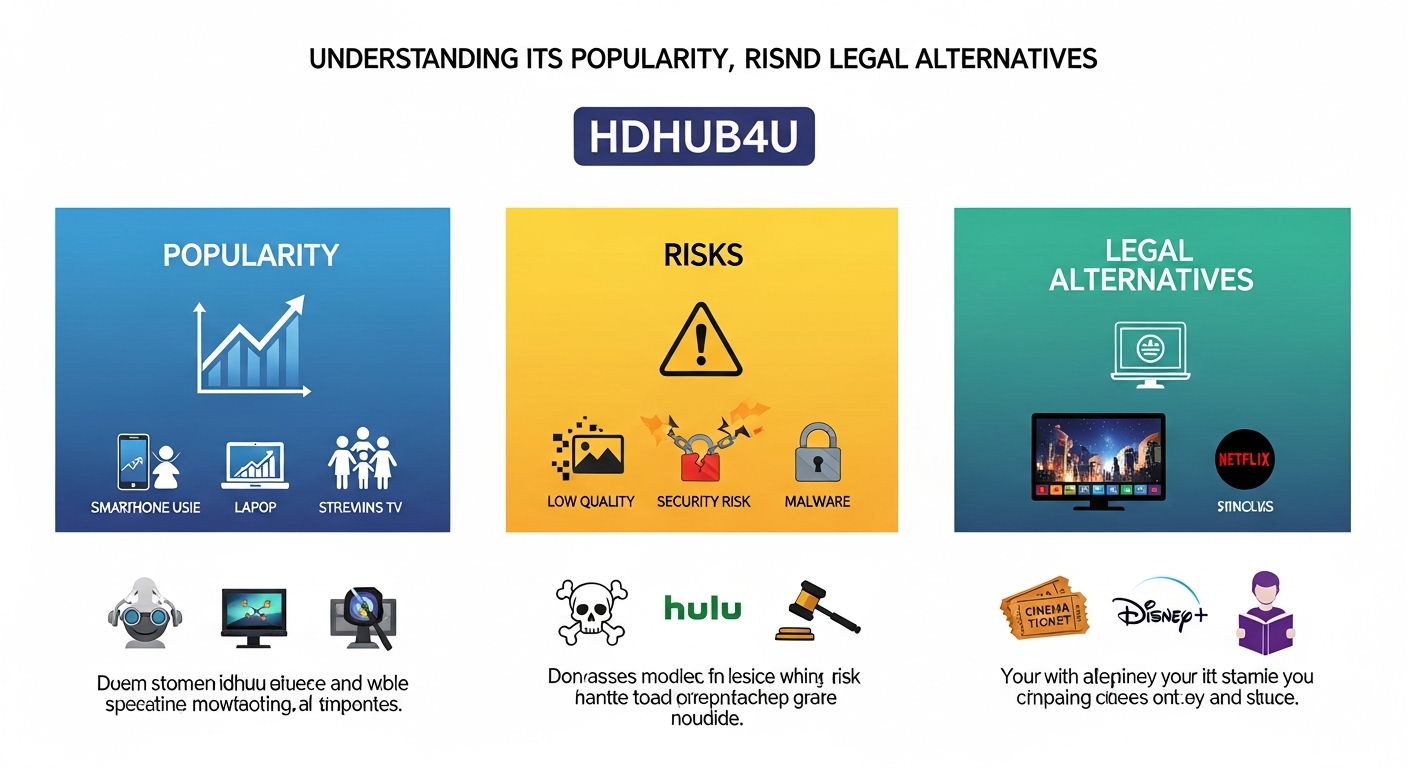Blog
i̇ns: Exploring Its Meaning, Values, and Modern Impact

The word i̇ns may look simple, yet it carries a depth of meaning that connects to humanity, morality, and identity. Across history and cultures, i̇ns has been used to describe the essence of being human—emphasizing compassion, community, and responsibility. In today’s world, where technology and globalization shape daily life, understanding i̇ns feels more relevant than ever.
Defining i̇ns
At its foundation, i̇ns is often connected to the concept of human beings and their moral qualities. It is more than just a reference to people it reflects awareness, empathy, and responsibility. The idea of i̇ns suggests that being human involves not only existence but also meaningful action.
Origins and Evolution of i̇ns
i̇ns in Early Writings
Historical texts reveal that i̇ns was frequently used by poets and philosophers to describe humanity’s nature. It symbolized life’s fragility, ethical duty, and the ability to connect with others.
Development Through Philosophy
For thinkers, i̇n has long represented self-awareness and moral choice. Unlike instinct-driven behavior, i̇ns highlights humanity’s unique capacity to reflect, make decisions, and pursue justice.
Why i̇ns Matters in Culture
A Symbol of Unity
Communities across the world use i̇n to remind individuals of their responsibility toward others. It emphasizes fairness, cooperation, and the shared values that keep society strong.
Role in Identity
Many cultural traditions consider i̇ns a defining element of personal identity. It’s not only about who we are but also how we treat others and contribute to the world around us.
i̇n and Society
Building Human Connections
Humans are social beings, and i̇n encourages trust, friendship, and family ties. A society built on i̇n values tends to thrive because respect and cooperation replace division.
Encouraging Ethical Choices
Practicing i̇n pushes individuals to act with honesty and integrity. It guides daily decisions—whether in education, careers, or personal relationships toward positive outcomes.
i̇ns in the Digital Age
Technology has reshaped how people connect, but the spirit of i̇n remains essential. Online platforms bring millions together, yet without empathy and respect, conflicts quickly arise. Applying i̇ns to digital communication ensures healthier online communities and meaningful interactions.
How to Practice i̇n in Daily Life
-
Be Compassionate – Show genuine care for others’ needs.
-
Value Relationships – Build trust and respect in friendships and families.
-
Support Fairness – Treat people equally regardless of differences.
-
Balance Online and Offline Life – Keep humanity at the center of digital exchanges.
-
Reflect on Personal Growth – Use i̇ns as a guide for making thoughtful choices.
The Global Importance of i̇ns
In a world where cultures mix more than ever before, i̇ns serves as a universal value that connects people across borders. It strengthens cooperation, encourages peace, and reminds us of our shared humanity. For education, workplaces, and international relations, embracing i̇ns helps build trust and harmony.
Conclusion
The concept of i̇n is more than a word it’s a philosophy of humanity. It represents compassion, morality, and responsibility that extend beyond personal life into culture, society, and even technology. By understanding and practicing i̇ns, individuals and communities can create a more balanced, ethical, and connected world.
Living with i̇ns means living with awareness, empathy, and respect for all. And in today’s fast-changing world, those values are more important than ever.
Blog
The Power of Straightforward Talk: Building Trust Through Clear Communication
Blog
Irish Business Systems: Driving Efficiency and Digital Growth in Modern Enterprises
Blog
Symbolism of Ticks: Hidden Meanings Behind a Tiny Creature

The natural world is filled with creatures that carry symbolic meanings, even those that seem small or unpleasant at first glance. Among them, ticks are rarely admired, yet they hold surprisingly powerful symbolic value. The symbolism of ticks often connects to persistence, survival, patience, and hidden influence. While many people associate ticks with discomfort or disease, symbolic interpretation looks beyond their physical traits. By examining their behavior and characteristics, we can uncover deeper meanings that apply to personal growth, emotional awareness, and life challenges. Understanding these interpretations provides a new perspective on a creature that is usually overlooked.
Persistence and Determination
One of the strongest aspects of the symbolism of ticks is persistence. Ticks are known for their ability to wait patiently for the right moment to attach to a host. They do not rush or waste energy unnecessarily. Instead, they remain focused and determined until an opportunity appears. Symbolically, this reflects the value of patience combined with steady determination. In life, success often requires waiting for the right circumstances while staying prepared. The tick’s behavior serves as a reminder that persistence, even when progress feels slow, can eventually lead to desired outcomes through resilience and quiet focus.
Survival and Adaptability
Ticks are remarkable survivors. They can endure extreme temperatures and long periods without feeding. This resilience contributes strongly to the symbolism of ticks in spiritual and psychological interpretations. They represent the ability to adapt and survive in challenging environments. In human life, adaptability is a key factor in overcoming hardship. Just as ticks adjust to different hosts and habitats, individuals must learn to navigate changing circumstances. Their survival instinct symbolizes inner strength and endurance. Although their presence may be unwelcome, their resilience offers a powerful metaphor for maintaining stability during uncertain times.
Energy Drain and Boundaries
Another common interpretation within the symbolism of ticks relates to energy and boundaries. Because ticks feed on blood, they are often seen as symbols of emotional or physical energy being drained. This meaning can reflect relationships or situations that leave a person feeling exhausted or overwhelmed. In this sense, ticks symbolize the importance of recognizing unhealthy attachments. They remind individuals to establish clear boundaries and protect their well being. When viewed symbolically, a tick can serve as a warning sign, encouraging self awareness and the courage to distance oneself from negative influences.
Patience and Timing
The behavior of ticks also highlights the importance of timing. They do not act randomly but wait carefully for the right opportunity. In the symbolism of ticks, this patient waiting represents strategic action. Acting too soon or without preparation can lead to failure, while thoughtful timing increases chances of success. This meaning applies to career decisions, relationships, and personal goals. Learning when to act and when to wait is a valuable life skill. The tick’s quiet stillness reminds us that patience is not weakness, but rather a powerful strategy for achieving long term results.
Hidden Threats and Awareness
Ticks are small and often go unnoticed until they have already attached themselves. This characteristic influences the symbolism of ticks as a representation of hidden threats or unseen problems. Symbolically, they can encourage vigilance and awareness. In daily life, not all challenges are obvious at first glance. Some issues develop quietly before becoming serious. The presence of a tick in symbolic interpretation may suggest the need to pay closer attention to subtle signs. It encourages mindfulness and proactive thinking, helping individuals address concerns before they grow into larger complications.
Transformation Through Discomfort
Although ticks are commonly associated with irritation, discomfort can lead to important lessons. The symbolism of ticks sometimes connects to growth that emerges from unpleasant experiences. Just as removing a tick requires care and attention, overcoming life challenges demands patience and courage. Difficult situations often reveal hidden strengths and personal resilience. In this way, ticks symbolize transformation that begins with discomfort but leads to greater awareness. They remind us that even negative encounters can provide valuable insights and opportunities for self improvement when approached thoughtfully.
Resourcefulness and Efficiency
Ticks are highly efficient in their survival methods. They conserve energy, attach firmly, and feed only when necessary. This efficiency contributes another layer to the symbolism of ticks. They represent careful use of resources and strategic planning. In a broader sense, this meaning encourages people to focus their efforts wisely. Rather than spreading energy thinly across many tasks, concentrating on clear priorities often produces better results. The tick’s resourcefulness highlights the value of discipline and intentional action. Symbolically, it promotes mindful decision making and effective use of available opportunities.
Emotional Attachment and Letting Go
Because ticks attach tightly to their hosts, they can symbolize emotional attachment. Within the symbolism of ticks, this attachment may reflect clinging to habits, beliefs, or relationships that no longer serve a positive purpose. Letting go can be difficult, especially when familiarity provides comfort. However, holding on too tightly can prevent growth. The tick’s strong grip serves as a metaphor for recognizing when attachment becomes unhealthy. It encourages reflection on whether certain connections are supportive or restrictive. Learning to release what drains energy creates space for healthier experiences and renewed balance.
Spiritual Lessons and Personal Reflection
In spiritual contexts, the symbolism of ticks invites deeper reflection. They may appear in dreams or symbolic imagery as reminders to examine one’s surroundings carefully. Their presence can signal the need for emotional cleansing or reassessment of priorities. Rather than viewing them purely as negative symbols, they can represent hidden lessons waiting to be understood. By considering what a tick represents in a specific situation, individuals gain insight into areas requiring attention. This reflective approach transforms an ordinary insect into a meaningful symbol of awareness, responsibility, and personal evolution.
Conclusion
The symbolism of ticks extends far beyond their physical presence in nature. They represent persistence, adaptability, awareness, and the importance of healthy boundaries. While often associated with discomfort, their symbolic meanings offer valuable life lessons about patience, resourcefulness, and emotional balance. By exploring these interpretations, we gain a deeper appreciation for how even the smallest creatures can carry profound messages. Understanding these symbolic connections encourages thoughtful reflection and empowers individuals to approach challenges with resilience, clarity, and mindful intention.
Blog
PSG vs Arsenal F.C. Timeline: A Complete History of Their European Encounters
Blog
Why Palm Beach Residents Trust Us for Wildlife Solutions

Wildlife encounters in Palm Beach can range from fascinating to frightening. When a raccoon takes up residence in your attic, or an opossum starts raiding your trash cans nightly, you need more than just a temporary fix—you need experts who understand both the animals and your community.
Palm Beach Wildlife Services has built its reputation on delivering humane, effective solutions that protect both your property and the local ecosystem. Our team doesn’t just remove unwanted visitors; we create lasting strategies that prevent future conflicts between homeowners and wildlife.
What Sets Our Wildlife Services Apart
Palm Beach’s unique coastal environment attracts diverse wildlife species, each requiring specialized knowledge for safe removal and exclusion. Our trained professionals bring years of hands-on experience dealing with everything from venomous snakes to persistent rodent colonies.
We recognize that every property presents different challenges. A waterfront estate faces distinct wildlife pressures compared to a suburban home near natural preserves. That’s why Palm Beach Wildlife Services tailors each intervention to your specific situation, considering factors like property layout, nearby habitats, and the species involved.
Comprehensive Wildlife Assessment
Before we implement any solution, our technicians conduct thorough property inspections. We identify entry points, assess damage, and determine which species are causing problems. This diagnostic approach ensures we address root causes rather than just symptoms.
Our assessments also reveal potential vulnerabilities in your property’s defenses against wildlife intrusion. Gaps in roofing, damaged vents, and unsealed crawl spaces all create opportunities for animals seeking shelter. We document these findings and provide clear recommendations for fortifying your home.
Our Range of Wildlife Services in Palm Beach
Palm Beach Wildlife Services handles the full spectrum of wildlife management needs. Whether you’re dealing with a single bat in your bedroom or a family of armadillos destroying your landscaping, we have the tools and training to resolve the issue.
Humane Animal Removal
We prioritize humane capture methods that minimize stress for both animals and residents. Our team uses species-appropriate trapping techniques approved by wildlife authorities, ensuring animals are handled safely and ethically throughout the removal process.
Once captured, animals are relocated according to state regulations and best practices. We never simply dump wildlife in random locations—proper relocation considers the animal’s needs and prevents it from becoming another homeowner’s problem.
Exclusion and Prevention Services
Removal alone doesn’t solve wildlife problems. Palm Beach Wildlife Services installs professional-grade exclusion barriers that keep animals from returning. Our materials withstand Florida’s harsh weather conditions and determined wildlife attempts to regain access.
We seal entry points with materials animals cannot chew through or tear apart. Chimney caps, reinforced vents, and secured crawl space access points become permanent fixtures protecting your property. These installations blend with your home’s architecture while providing maximum protection.
Damage Repair and Cleanup
Wildlife infestations often leave behind significant damage and health hazards. Insulation contaminated with urine and feces, chewed electrical wiring, and structural damage from persistent gnawing all require professional remediation.
Our cleanup services restore your property to pre-infestation condition. We safely remove contaminated materials, sanitize affected areas, and replace damaged insulation. This thorough approach eliminates odors that might attract new animals while protecting your family from potential pathogens.
Why Palm Beach Property Owners Choose Us
Trust forms the foundation of our client relationships. When you invite Palm Beach Wildlife Services onto your property, you’re working with licensed professionals who respect your home and privacy.
Our technicians arrive on time, work efficiently, and maintain open communication throughout the project. We explain our findings in plain language, answer your questions thoroughly, and provide realistic timelines for resolution.
Local Expertise That Matters
Palm Beach’s wildlife behaves differently than animals in other parts of Florida. Coastal proximity, tropical vegetation, and urban development create unique challenges that require local knowledge. Our team understands seasonal patterns, breeding cycles, and behavioral tendencies of the species common to this area.
This expertise translates to faster problem resolution and more effective long-term solutions. We know where animals are likely to hide, which entry points they prefer, and what attracts them to residential properties in the first place.
Licensed and Insured Protection
Palm Beach Wildlife Services maintains all required licenses and carries comprehensive insurance coverage. This protects you from liability while ensuring our work meets state standards for wildlife management.
We stay current with evolving regulations and best practices through continuing education. Wildlife management techniques improve constantly, and we invest in training that keeps our team at the forefront of the industry.
Common Wildlife Challenges We Resolve
Palm Beach residents encounter various wildlife species that can become problematic when they encroach on human spaces. Understanding these common culprits helps property owners recognize signs of infestation early.
Raccoons frequently target attics and chimneys for denning sites. These intelligent animals can manipulate latches and remove vent covers, making them particularly challenging intruders. Their nocturnal activity often goes unnoticed until significant damage occurs.
Squirrels damage homes by gnawing through wood, insulation, and even electrical wiring. Their constant need to chew creates fire hazards and costly repairs. Palm Beach Wildlife Services traps and removes squirrels while implementing exclusion measures that prevent replacement populations from moving in.
Iguanas, though fascinating to observe, can wreak havoc on landscaping and undermine pool decks with their burrows. Our team safely captures and removes these reptiles while advising property owners on habitat modifications that make their yards less attractive to future colonizers.
Bats provide valuable pest control by consuming insects, but they cannot coexist safely with humans in shared spaces. Their droppings accumulate rapidly and harbor dangerous fungi. We perform bat exclusions using one-way devices that allow bats to exit but prevent re-entry, ensuring complete colony removal without harming protected species.
Our Commitment to Environmental Stewardship
Effective wildlife management balances human needs with ecological responsibility. Palm Beach Wildlife Services operates with deep respect for the natural world, recognizing that wildlife conflicts usually stem from habitat loss and human encroachment.
We educate clients about coexistence strategies that reduce future conflicts. Simple changes like securing garbage, removing food sources, and maintaining proper landscaping can dramatically decrease wildlife attraction to your property.
When removal becomes necessary, we handle every animal with care and dignity. These creatures aren’t pests—they’re displaced wildlife trying to survive in an increasingly developed landscape. Our methods reflect that understanding while still prioritizing your safety and property protection.
Taking the First Step Toward Resolution
Palm Beach Wildlife Services provides timely, professional solutions to stop wildlife problems before they escalate. Wildlife problems rarely resolve themselves—delaying intervention lets infestations worsen, damage accumulate, and health risks grow. The sooner you contact Palm Beach Wildlife Services, the more efficiently your property can be restored to safety, comfort, and peace of mind.
Our team responds quickly to service requests, often providing same-day or next-day appointments for urgent situations. We understand that wildlife emergencies don’t follow convenient schedules, which is why we make ourselves available when you need us most.
Don’t let wildlife conflicts compromise your comfort, safety, or property value. Palm Beach Wildlife Services delivers solutions that work, backed by our commitment to excellence and customer satisfaction. Reach out today and experience the difference that true wildlife management expertise makes.
Blog
RPirloTV: A Comprehensive Guide to the Popular Sports Streaming Platform
Blog
Hdhub4u: Understanding Its Popularity, Risks, and Legal Alternatives
Blog
Real Madrid vs Arsenal F.C. Timeline: A Complete History of Their European Encounters

The rivalry between Spanish and English football clubs has always produced unforgettable European nights. Among those matchups, the real madrid vs arsenal f.c. timeline stands out for its intensity, tactical battles, and historic significance. Although these two giants have not faced each other frequently, every encounter has carried major importance in continental competition. From dramatic knockout clashes to closely contested fixtures, their meetings have reflected the strength and tradition of both clubs. The full journey of their encounters, key moments, tactical developments, and the lasting impact on European football history.
Early European Context Before Their First Meeting
Before examining the real madrid vs arsenal f.c. timeline, it is important to understand the European context that surrounded their first clash. Real Madrid had already established itself as a dominant force in the UEFA Champions League, with multiple titles shaping its continental reputation. Arsenal, meanwhile, was striving to convert domestic success into European glory. Both clubs carried strong identities built on technical quality and attacking ambition. When they were finally drawn against each other, expectations were high across Europe. Supporters anticipated a tactical contest between Spanish control and English intensity, setting the stage for a memorable chapter.
The Historic 2005–06 Champions League Clash
The most iconic moment in the real madrid vs arsenal f.c. timeline came during the 2005–06 Champions League Round of 16. Arsenal traveled to the legendary Santiago Bernabeu Stadium for the first leg. Few predicted what would follow. Thierry Henry produced a stunning solo goal that secured a 1–0 victory for the English side. The result shocked European observers and placed Arsenal in a commanding position. In the return leg, disciplined defending and tactical organization ensured a goalless draw. That performance marked a turning point in Arsenal’s European ambitions and remains a defining memory for supporters.
Tactical Battle Between Wenger and the Madrid Setup
A significant aspect of the real madrid vs arsenal f.c. timeline was the tactical duel between managers and playing philosophies. Arsène Wenger prioritized quick transitions, technical midfield play, and disciplined defensive structure. Real Madrid relied on experienced stars and creative attackers capable of changing matches instantly. Arsenal’s compact formation limited Madrid’s space, forcing them into less effective wide play. The Spanish side struggled to break down organized resistance, highlighting the importance of tactical preparation in European football. This encounter demonstrated that collective discipline could overcome individual brilliance, offering valuable lessons for future Champions League campaigns across Europe.
Defensive Masterclass That Shaped Arsenal’s Run
One of the most remarkable features of the real madrid vs arsenal f.c. timeline was Arsenal’s defensive resilience during the 2005–06 knockout stage. Across both legs, Arsenal prevented Real Madrid from scoring, an extraordinary achievement considering Madrid’s attacking pedigree. Goalkeeper Jens Lehmann delivered crucial saves, while the defensive line maintained exceptional focus. The clean sheets provided confidence that carried Arsenal through subsequent rounds. This defensive solidity became the foundation of their run to the Champions League final that season. The tie reinforced the importance of organization, teamwork, and composure when facing elite European opposition in high-pressure matches.
Real Madrid’s European Evolution After the Encounter
Following that elimination, Real Madrid underwent structural and strategic changes in European competition. The setback in the real madrid vs arsenal f.c. timeline exposed weaknesses in squad balance and defensive stability. Over the next decade, the club invested heavily in rebuilding its European identity. These adjustments eventually contributed to a new era of dominance, with multiple Champions League titles secured in the 2010s. The defeat against Arsenal became part of a broader learning process that reshaped Madrid’s approach. It highlighted how even historically successful clubs must adapt, evolve tactically, and strengthen squad depth to remain competitive.
Arsenal’s Growing Confidence on the European Stage
For Arsenal, victory over Real Madrid significantly boosted credibility in continental football. The real madrid vs arsenal f.c. timeline symbolized a breakthrough moment that demonstrated their ability to defeat Europe’s elite. Winning at the Santiago Bernabeu provided belief that Arsenal could compete beyond domestic success. The momentum carried them to the Champions League final that season, their first appearance in the competition’s showpiece event. Although they fell short of lifting the trophy, the experience strengthened the club’s European reputation. It remains one of the most celebrated chapters in Arsenal’s modern history and continues to inspire supporters.
Home Atmosphere and the Return Leg in London
The second leg of the 2005–06 tie took place at the Emirates Stadium, where Arsenal protected their advantage with composure. The atmosphere reflected both anticipation and tension, as supporters understood the importance of the moment. Real Madrid attempted to assert control early, but Arsenal’s disciplined shape neutralized their attacking threats. The goalless draw confirmed Arsenal’s progression and secured a historic aggregate victory. The match demonstrated how home support, combined with tactical discipline, can shape crucial European fixtures. It remains a defining entry in the real madrid vs arsenal f.c. timeline.
Long Gaps and Renewed Interest in Future Meetings
Despite the magnitude of their previous clash, meetings between the clubs have been relatively rare. This scarcity has increased interest whenever potential draws bring them together in European competitions. The limited number of matches adds exclusivity to the real madrid vs arsenal f.c. timeline. Each possible encounter generates global excitement, as supporters recall past drama and anticipate new storylines. Modern squads feature different stars and tactical systems, yet the historical connection adds emotional depth. Whenever these teams share the pitch again, memories of their earlier battle shape expectations and renew competitive intensity.
Legacy and Impact on European Football Narratives
The real madrid vs arsenal f.c. timeline may not be extensive, but its impact on European narratives is significant. Arsenal’s triumph in Madrid challenged assumptions about competitive balance in Europe at the time. For Real Madrid, the defeat served as motivation for future transformation and eventual dominance. The tie demonstrated that tactical intelligence and defensive unity can overcome reputational advantage. It also strengthened the tradition of compelling encounters between English and Spanish clubs. Even years later, analysts and fans revisit that matchup as an example of how a single tie can influence broader European football history.
Conclusion
The real madrid vs arsenal f.c. timeline represents more than a set of match results. It captures a defining European clash that shaped the trajectories of both clubs. From Arsenal’s disciplined defensive display to Real Madrid’s subsequent evolution, the encounters left a lasting mark on continental competition. Although their meetings have been limited, the significance of each game continues to resonate with supporters worldwide. As European tournaments evolve and new generations emerge, the history between these two clubs remains a powerful reminder of football’s unpredictability and enduring drama.
-

 Entertainment5 months ago
Entertainment5 months agoOGFap Review: Pros, Cons, and User Experience
-

 Fashion4 months ago
Fashion4 months agoComme des Garcons: The Iconic Avant-Garde Fashion Brand
-

 Uncategorized5 months ago
Uncategorized5 months agoManga18fz: A Complete Guide to the Trending Manga Platform
-

 Blog5 months ago
Blog5 months ago鲁Q 669FD License Plate Lookup – Car History & Vehicle Records
-

 Fashion4 months ago
Fashion4 months agoCustom Jersey Printing: Designing Your Team’s Identity with SeamJersey
-

 Blog4 months ago
Blog4 months agoRuisseau d’Avenelle: A Peaceful Escape into Nature
-

 Technology5 months ago
Technology5 months agoSimpcit6: Unlocking the Next Phase of Digital Simplicity
-

 Life Style4 months ago
Life Style4 months agoThe Ultimate Guide to Halloween Contacts for Eyes: Everything You Need to Transform into Your Darkest Character





